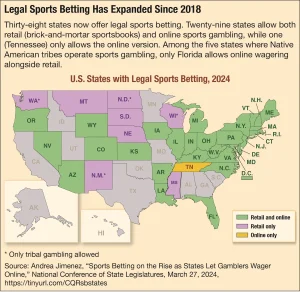Cultural differences in gambling traditions worldwide

Think of gambling, and your mind might jump to the neon-lit Strip of Las Vegas or the clattering slot machines of a generic casino. But honestly, that’s just one flavor in a global feast of chance. Around the world, games of luck and skill are deeply woven into the fabric of culture, reflecting history, spirituality, and social values.
It’s not just about winning money. Often, it’s about community, ritual, and even connecting with the divine. Let’s dive into the fascinating cultural differences in gambling traditions that make this human pastime so incredibly diverse.
East Asia: Luck, Ancestors, and Symbolism
In many East Asian cultures, gambling isn’t merely a pastime; it’s often intertwined with concepts of fortune and ancestral favor. The games themselves are steeped in symbolism.
Mahjong: The Sound of Society
More than a game, Mahjong is a social institution. The clacking of tiles is the soundtrack to family gatherings and festive holidays. While it can be played for money, its core function is connection. It reinforces strategy, memory, and social interaction. It’s a conversation, a test of wit, all wrapped up in beautifully crafted tiles.
The Macau Phenomenon
Then you have Macau. A tiny speck on the map that utterly dwarfs Las Vegas in gambling revenue. Here, the game of choice is often Baccarat. Why? Well, it’s fast, it’s simple, and many believe it’s the purest game of luck—making it the perfect vessel for testing one’s fate. The cultural preference here leans towards games where skill takes a backseat to the whims of destiny.
Europe: Class, Strategy, and the Café Culture
Cross over to Europe, and the atmosphere shifts. Gambling traditions here often carry a whiff of aristocracy and intellectual pursuit.
Roulette and the Glamour of Monte Carlo
Monte Carlo is synonymous with old-world elegance. Roulette, a game of pure chance invented in France, became its crown jewel. It’s less about frantic energy and more about the quiet tension as the ivory ball dances. It’s theater. It’s about seeing and being seen—a tradition of glamour that persists.
UK’s Pub Culture and the “Lad” Ritual
Meanwhile, in the UK, gambling is far more… democratic. Fixed-odds betting terminals in betting shops, the national obsession with football pools, and a pint in the local pub. It’s a casual, integrated part of social life. The rise of online betting platforms has only cemented this, making a quick wager on the horses as British as a cup of tea.
North America: The Spectacle of the Casino
American gambling culture is, in a word, spectacular. It’s a product designed for mass consumption.
Las Vegas: The Theme Park of Chance
Vegas didn’t just build casinos; it built entire worlds. You can gamble in a pyramid, next to a pirate ship, or under the Eiffel Tower. The goal is escapism. The games reflect this—craps, with its complex bets and communal cheers, and the hypnotic, solitary pull of the slot machine. It’s entertainment first, gambling second.
Native American Casinos: Sovereignty and Spirituality
This is a crucial, and often misunderstood, dimension. For many Native American tribes, gaming is not a cultural tradition per se, but a powerful tool of economic sovereignty. The revenue funds healthcare, education, and infrastructure. That said, some traditional games of chance, which were often deeply spiritual ceremonies connected to harvests and healing, exist in a completely separate realm from modern casino operations.
Unique Games from Around the Globe
Beyond the casinos, you find games that are utterly unique to their cultures. They’re a world away from blackjack.
| Game | Region | Cultural Significance |
| Pachinko | Japan | A hybrid of pinball and a slot machine, it’s a wildly popular pastime operating in a legal gray area, creating a unique and deafeningly loud subculture. |
| Jogo do Bicho | Brazil | The “Animal Game” is an illegal but deeply ingrained numbers game tied to… you guessed it, animals. It’s a part of daily life and a complex piece of Brazil’s social fabric. |
| Jueteng | Philippines | An illegal numbers game that remains stubbornly popular, highlighting the gap between law and popular custom in many parts of the world. |
Modern Shifts: The Digital Homogenization?
Here’s the deal: the internet is changing everything. Online casinos and sportsbooks are making previously local games accessible to a global audience. You can now play Sic Bo from your sofa in Stockholm. This creates a fascinating tension—will global access erase these beautiful cultural distinctions?
Maybe. But perhaps not. Because the reasons why people play are still rooted in their upbringing. The desire for a communal experience, the belief in luck as a tangible force, the pursuit of strategic mastery—these deep-seated cultural drivers are harder to homogenize than the games themselves.
So, the next time you think about placing a bet, remember you’re tapping into a human story much richer and more varied than any single game could ever contain. It’s a story written in tiles, cards, and spinning wheels, reflecting who we are and what we believe about fate, fortune, and each other.







